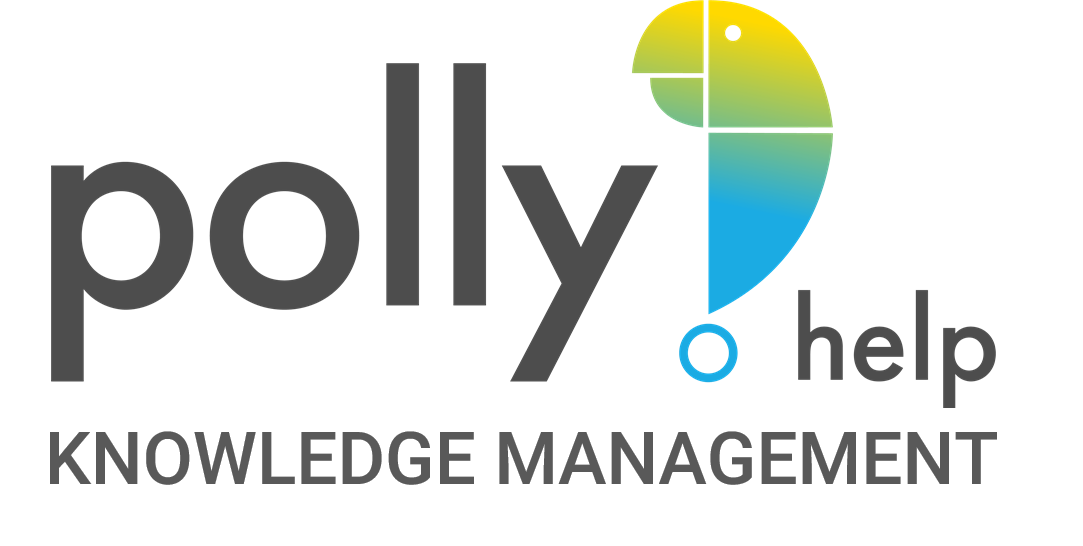In the rapidly evolving field of healthcare, one crucial element often overlooks is smart and efficient knowledge management in healthcare. Knowledge in healthcare is not only abundant but is also vital for making informed decisions. Furthermore, it greatly sways the level of patient care quality.
With the growing reliance on different forms of healthcare technology, the ability to manage, disseminate, and utilize this mass of information effectively becomes even more significant.
Discovering ways to manage knowledge in healthcare can directly contribute to better patient outcomes, more informed decision-making, improved efficiency of care, and overall growth in the sector. The subject, however, is multifaceted and layered with complexities.
This article ventures into the landscape of healthcare knowledge management—its imperatives, the challenges it presents, the technological advancements aiding its implementation, and the successes achieved so far.
Key Takeaways
- Healthcare knowledge management is integral for making informed decisions.
- Effective management of healthcare knowledge improves patient care quality.
- Advancements in healthcare technology facilitate better knowledge management.
- Exploring the challenges and solutions in healthcare knowledge management can lead to better patient outcomes and operational efficiency.
The Critical Role of Knowledge Management in Healthcare
In the high-stakes landscape of the healthcare sector, Knowledge Management (KM) plays a pivotal role. Much akin to a meticulously curated library, KM harmonizes various knowledge facets within an organization. These elements encompass the seasoned expertise of healthcare professionals, sophisticated technological resources, and efficient work methodologies. All these contribute collectively to spark innovation and add unquestionable value to the organization.
Healthcare KM strategies have a multifaceted nature. They could range from disseminating groundbreaking medical research among doctors to facilitating the exchange of innovative caregiving techniques among nurses. The aim is always to leverage healthcare knowledge sharing to advance medical practice efficiency and patient outcomes.
A powerful reflection of strategic KM in healthcare can be seen through the World Health Organization’s TRACK initiative. This initiative champions knowledge sharing to combat global health afflictions, for instance, the advanced HIV disease.
- The TRACK initiative focuses on accelerating response to advanced HIV disease by employing systematic knowledge management.
- It enables direct access to a pool of research, data, and experiences related to advanced HIV disease.
- The initiative prioritizes the sharing of knowledge and best practices, thereby bridging gaps and uplifting healthcare standards worldwide.
The following table delineates the critical components of KM that can effectively aid in healthcare knowledge sharing.
| Components of KM | Role in Healthcare |
|---|---|
| Employee Expertise | Leverages the knowledge and experience of medical professionals for better patient care and innovative strategies. |
| Technological Resources | Employs advanced healthcare technologies to optimize workflows, advance research, and enhance care delivery. |
| Work Methods | Adoption of effective workflows and operational strategies to simplify daily processes and improve efficiency. |
Knowledge Management in healthcare serves as a strategic approach to steering medical practices towards advanced proficiency. It outlines how healthcare community, powered by knowledge sharing and collaboration, can yield better results in combating global health issues.
Challenges in Implementing Knowledge Management Strategies
As Healthcare organizations strive to enhance their knowledge management practices, they face numerous challenges that need addressing, from ensuring data privacy to fostering a culture of knowledge sharing and integrating diverse data sources seamlessly.
Protecting Patient Information and Data Privacy
In the age of digital transformation, ensuring healthcare data privacy and patient information security has become a critical challenge. With evolving regulations like the Health Insurance Portability and Accountability Act (HIPAA) in the U.S, organizations must balance the need for information accessibility and regulatory compliance. Acknowledging the importance of data security, healthcare institutions should focus on robust access controls, intricate encryption protocols, and consistent security checks to safeguard data privacy while maintaining effective knowledge management practices.
Overcoming Cultural Barriers to Knowledge Sharing
A successful implementation of knowledge management strategies demands a shift towards a healthcare knowledge culture that values knowledge exchange and mutual learning. The challenge is to create a collaborative work environment where employees not only share their expertise but also learn from their peers. By fostering such a culture, healthcare organizations can promote continuous knowledge sharing, leading to improvements in efficiency, patient care quality, and overall performance.
The Complexity of Integrating Diverse Knowledge Sources
Finding the means to integrate diverse knowledge sources into a standardized and efficient knowledge management system is another significant hurdle. This involves dealing with multiple types of medical knowledge and diverse healthcare information, such as from knowledge repositories and databases. It is critical to ensure that this integrated knowledge feeds into improved patient care. Through an effective strategy for integrating healthcare knowledge, organizations can ensure that all types of data are managed and utilized efficiently, ultimately enhancing the quality of care provided to patients.
| Challenges | Strategies |
|---|---|
| Data Privacy & Patient Information Security | Implement robust access controls, intricate encryption protocols, and regular security checks |
| Cultural Barriers to Knowledge Sharing | Create a collaborative work environment, foster healthcare knowledge culture, promote knowledge exchange |
| Integrating Diverse Knowledge Sources | Develop efficient strategies for diverse medical information management, ensure coherent and effective integration of all data types |
Advances in Technology Enhancing Knowledge Management
As modern healthcare evolves, the transformation is largely driven by noteworthy advancements in IT. These healthcare IT advancements are bringing unprecedented changes to the face of knowledge management. Cutting-edge tools like electronic meeting systems, expansive knowledge databases, and versatile collaboration systems are emerging as pioneering solutions.
These critical tools provide the necessary platforms to exchange different forms of knowledge efficiently, creating a seamless flow of information between healthcare professionals. They allow teams to effectively capture, share, and utilize clinical knowledge, thus exponentially improving patient care outcomes.
The role of technology in this landscape is twofold. Firstly, it simplifies the process of managing and sharing knowledge across various channels. Secondly, it ensures this knowledge is readily available when needed, thus enabling quick and informed decision-making.
Among these advancements, EHR systems and clinical decision support tools have made a significant impact. EHR systems, especially, provide an organized, digitalized record of patient health information, eliminating paper records and ensuring ease of access and sharing of information. These systems provide an interoperable solution that integrates with different healthcare IT systems, making them a convenient tool for healthcare professionals and patients alike.
Clinical Decision Support tools, on the other hand, help guide healthcare providers towards informed clinical decisions. This is achieved through the incorporation of decision support algorithms and healthcare regulations embedded in these systems. This intelligent use of information results in better patient outcomes and overall improvements in healthcare delivery.
| Technological Advancement | Impact on Knowledge Management |
|---|---|
| Electronic Meeting Systems | Enable real-time communication and sharing of knowledge among healthcare professionals |
| Knowledge Databases | Provide a repository for storing and retrieving medical knowledge efficiently |
| EHR Systems | Offer a digitized record of patient health information, enhancing the sharing and accessibility of patient-related information |
| Clinical Decision Support Tools | Guide informed clinical decisions by integrating decision-support algorithms and healthcare regulations |
By leveraging these technological advancements in knowledge management, healthcare organizations can enhance their operational efficiency, increase patient satisfaction, and most importantly, deliver higher quality care.
Success Stories of Knowledge Management in Healthcare
As the healthcare sector capitalizes on advancements in health information technology, it’s inspiring to see how innovative tools have successfully translated into significant improvements in care delivery. These include Electronic Health Records, Clinical Decision Support Systems, and modern collaboration platforms that have redefined communication in medical settings. Let’s take a closer look at these success stories.
Electronic Health Records: A Digital Revolution
One of the notable successes in healthcare knowledge management comes courtesy of the Electronic Health Records (EHRs). The EHR benefits extend beyond regular record-keeping. These digitally managed patient records have streamlined workflow, reduced medical errors, and enhanced patient safety. As a crucial asset in the patient information management, EHRs enable quick and reliable access to a patient’s health history, making them integral tools for informed medical decision-making.
Clinical Decision Support Systems: Smart Care
Clinical Decision Support Systems (CDSS) in healthcare have proven to be a key triumph in managing medical knowledge. These technology platforms assist with integrating mountains of medical literature, relevant research, and established clinical guidelines into practice. This facilitates evidence-based practices, leveraging data to optimize patient-centric care. CDSSs bridge the gap between data generation and care delivery, helping clinicians make patient-specific decisions at the point of care in real time.
Collaboration Platforms: Uniting Healthcare Professionals
Healthcare collaboration tools also lay a milestone in knowledge management in the medical sector. These tools bring healthcare professionals together, irrespective of their physical location, to communicate in real-time, share vital documents securely, and collaborate efficiently. This blend of real-time communication and secure document sharing underscores the vitality of technology in healthcare settings, making it possible for professionals to align their decision-making towards improved patient care.
| Technology Tools | Impact on Healthcare |
|---|---|
| Electronic Health Records (EHRs) | Streamlining workflow, reducing errors, and improving patient safety via efficient patient information management. |
| Clinical Decision Support Systems (CDSSs) | Driving evidence-based practices by integrating medical literature, research, and clinical guidelines into patient care. |
| Collaboration Platforms | Enhancing real-time communication and secure document-sharing amongst healthcare professionals for efficient, patient-centric decision making. |
Summarily, these health technology tools illustrate the potential of successful knowledge management in fostering the much-needed digital revolution in the healthcare sector. By enhancing communication, improving patient information management, driving evidence-based practices, and overall delivering customized care, these tools stand testimony to the essential role of technology in improving quality and efficiency in healthcare.
Optimizing Clinical Decision-Making Through Effective Knowledge Management
In the dynamic and ever-evolving field of healthcare, one aspect that received significant attention lately has been the integration of knowledge management. Informed and effective healthcare decision-making is a crucial part of any healthcare provider’s role. For this to be realized, easy and comprehensive access to a variety of information, such as patient histories, relevant medical literature and established treatment protocols is an absolute imperative.
Knowledge management systems aim to streamline this process, allowing healthcare providers to access all necessary information immediately, thereby, simplifying the process of deducing accurate diagnoses and formulating effective treatment plans. In this manner, knowledge management significantly boosts not just the efficiency of healthcare providers, but also the overall quality of patient care.
Let’s discuss some of the avenues where knowledge management has spearheaded an improvement in healthcare decision-making:
- Assessing patient histories: With a robust knowledge management system, a patient’s history can be accessed and assessed quickly and comprehensively, ensuring that decisions are based on a full understanding of the patient’s health trajectory.
- Informed Treatment Plans: Treatment protocols can be designed, keeping in mind the specific nature of a patient’s condition. When armed with access to medical literature and previous case studies, healthcare providers can customize the most suitable treatment plans for their patients.
- Established Policies and Protocols: Strict adherence to established policies and protocols is easier to maintain through an integrated knowledge management system. No matter how complex the conditions might be, the standard rules and procedures can always serve as a guiding light for effective treatment.
In the end, implementing effective knowledge management is not just about making the best decisions, it’s also about nurturing a culture of continual learning and patient care improvement. This fosters an environment within healthcare facilities that prioritizes the patient above everything else and is committed to serving them in the best way possible.
Strategic Knowledge Management for Improved Patient Care Coordination
Knowledge management plays an intrinsic role in patient care coordination; whether it’s arranging appointments or dividing resources, it allows healthcare providers and patients to access the essential information they need, thereby enhancing the patient experience. Two key factors in this process include efficient healthcare scheduling systems and resource management in healthcare.
Scheduling and Resource Allocation
When it comes to the allocation of resources and scheduling patient appointments, a functioning and well-executed knowledge management system can make all the difference. For instance, an efficiently managed appointment calendar can avoid unnecessary delays, enhance patient satisfaction, and ensure resources are put to their best possible use. Furthermore, it can lead to optimized resource allocation, saving both time and effort and creating a more efficient healthcare system.
Accessing Patient Records and Treatment Histories
Another aspect where knowledge management significantly contributes is in the realm of patient data accessibility and medical history management. Through a well-structured approach, it is possible to facilitate easy access to a patient’s records and medical history. This allows healthcare providers to offer a more personalized level of care, focusing on the specific needs and medical history of each patient. This type of tailored care invariably leads to better treatment outcomes and improved patient satisfaction. Ultimately, strategic knowledge management not only enhances the efficiency of healthcare providers but also adds value to patient care.
The Impact of Knowledge Management on Telehealth Services
The rapid progress in technological capabilities coupled with our society’s growing digital competency has led to substantial advancements in telehealth. As one of the defining innovations in healthcare, telehealth strategically integrates the principles of knowledge management to provide top-tier digital healthcare services conveniently and efficiently.
Knowledge management in telehealth encompasses the proper collecting, organizing, and sharing of detailed medical knowledge and patient-specific data across multiple platforms. This systematic procedure fosters a harmonious flow of information, crucial for both healthcare providers and patients to make informed decisions promptly.
With efficient knowledge management practices, the access and security of patient data on digital platforms are well-maintained. As a result, healthcare providers and patients can engage in virtual consultations without compromising privacy. This advancement allows for the continuous provision of quality healthcare services, even in a largely remote setup.
Moreover, it plays a vital role in conducting online clinical research. With the right knowledge management tools, researchers can quickly gather, analyze, and disseminate their findings on a larger scale, contributing to the overall progression of telehealth services.
Given the natural intersection between telehealth and self-service operations, the role of knowledge management becomes even more essential. It empowers patients to have an active part in managing their health by providing them with the necessary resources, tools, and information.
Here is how knowledge management impacts critical aspects of Telehealth:
| Telehealth Components | Impact of Knowledge Management |
|---|---|
| Digital Consultations | Enhanced patient-doctor engagement through comprehensive, organized, and accessible information. |
| Online Clinical Research | Promotes efficiency and accuracy in collecting, processing, and publishing comprehensive medical data. |
| Self-service Operations | Empowers patients with necessary self-care information, promoting proactive health management. |
In conclusion, the invaluable contribution of knowledge management to the growth and effectiveness of telehealth services is undeniable. As changes and advancements continue in the landscape of healthcare, its synergy with knowledge management will continue to develop, providing better and more accessible medical services everywhere.
Healthcare Knowledge Management Issues Advances and Successes
Effective knowledge management in healthcare serves as a tool for addressing major challenges, translating knowledge into practice, and fostering cutting-edge best practices. A nuanced understanding of knowledge plays a crucial role, from safeguarding sensitive patient information to helping clinicians make informed decisions, thereby improving patient care processes and outcomes.
Addressing Key Healthcare Challenges
The healthcare industry has been grappling with a plethora of complexities related to data privacy, cultural differences, and the daunting task of enveloping diverse knowledge sources into a cohesive knowledge management system. By deploying successful KM strategies, healthcare institutions can cater to these obstacles, enhancing their capacity to make informed decisions, and thereby upgrading the standard of patient care services.
Fostering Industry Innovations and Best Practices
Knowledge management propels healthcare innovation and the formulation of best industry practices. A culture of open knowledge sharing stimulates creativity among clinicians, encourages continuous learning, and contributes to remarkable advancements in patient care methods and healthcare insurance models.
Thus, effective knowledge management is instrumental in surmounting healthcare challenges, fostering innovation, and driving the adoption of industry’s best practices. It allows healthcare professionals to build better strategies and deliver quality care, thereby shaping the future of healthcare.





